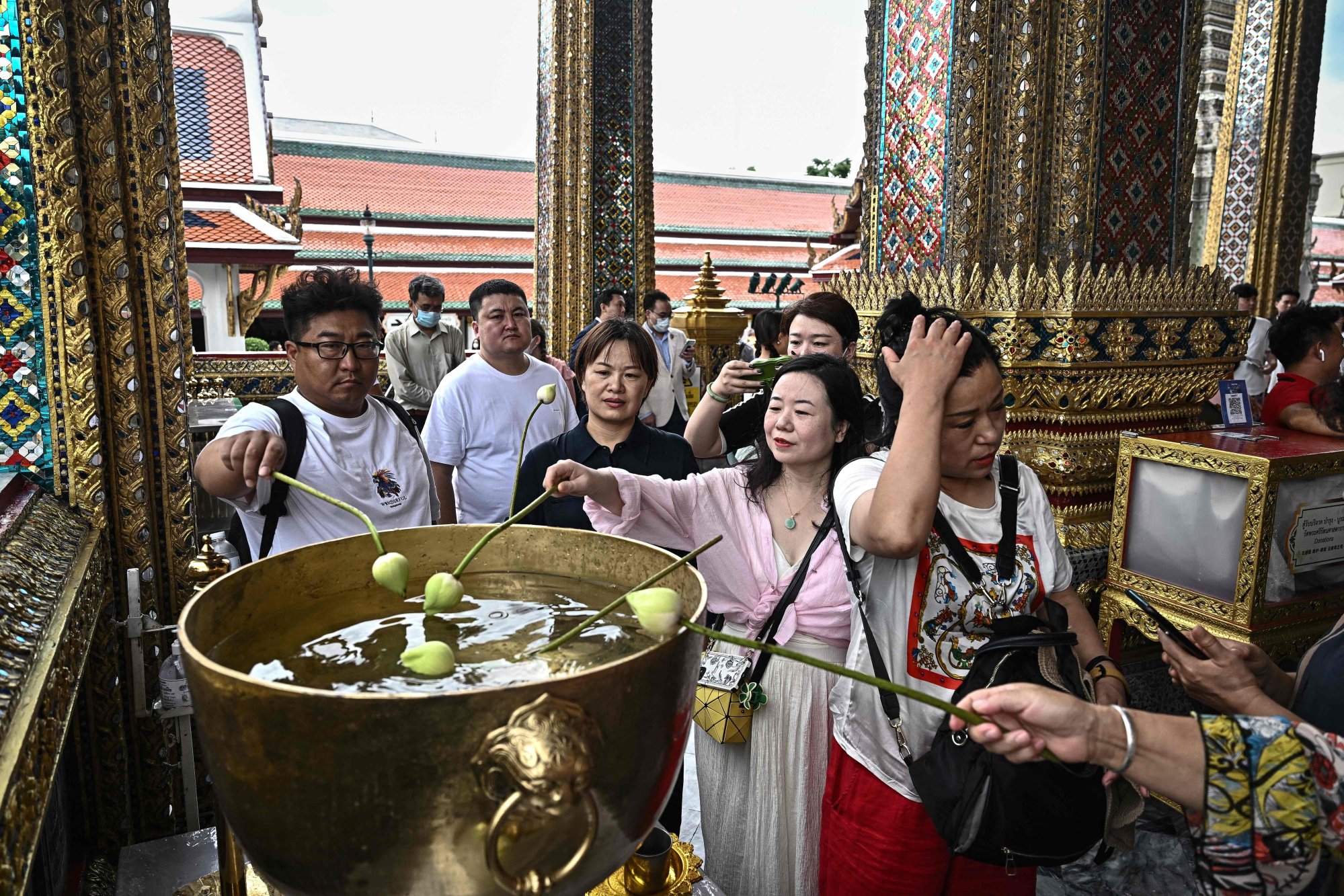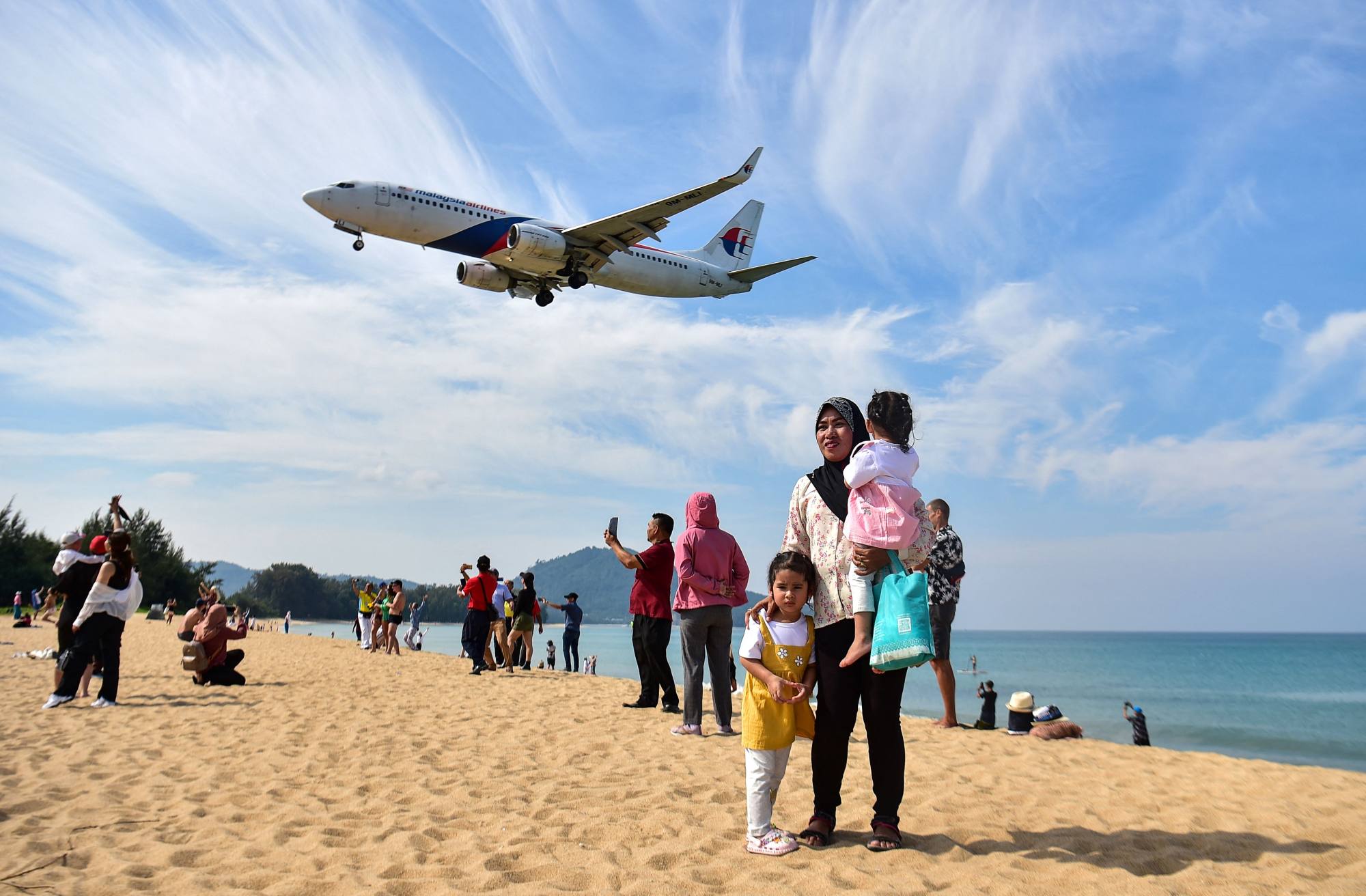
Thailand soothes fears over visa scheme for Chinese visitors amid recent abductions
- The policy aims to boost tourism revenue but risks misuse by low budget tours popular with Chinese visitors that are a bane for local businesses
- The concerns also come amid a rise in abductions, sometimes fatal, involving Chinese nationals who attack their fellow citizens mainly for money
Thailand has sought to allay fears over a visa-free entry scheme for visitors from China, saying it would not lead to a surge in illegal Chinese businesses and transnational crime as the kingdom looks to inject more tourism dollars into its slowing economy.
The tours involve Chinese visitors paying Thai-based operators low prices for their package holiday. But once in the Southeast Asian nation, they are often pressured into buying overpriced food, accommodation and gifts.

Srettha said more Kazakh tourists were visiting Thailand, with a significant increase expected in the coming months due to harsh winter conditions at home.
The tourism-dependent country’s sandy beaches have drawn 18.5 million foreign visitors, including more than 2 million Chinese, so far this year.

Revenue from foreign travellers totalled 775 billion baht (US$21.9 billion) as of September 11, according to the tourism ministry.
Sudawan said it was wrong to assume that all Chinese visitors were intent on exploiting Thai business operators or engaging in criminal activities, The Nation news website reported.
She said tourist-friendly measures, including weeding out potential troublemakers and an app to help travellers, have been put in place.
In May, Thai and Chinese police joined forces to stamp out criminal elements entering the kingdom using short-term visas to execute kidnappings for ransom of their mainland compatriots.
Thailand has seen a rise in abductions, sometimes fatal, involving Chinese nationals who attack their fellow citizens mainly for money.
The suspect had demanded more than US$790,000 as ransom to free the victim.
Authorities in January launched a major crackdown on Chinese-run illegal commercial entities that led to the arrest of high-profile businessman Chaiyanat “Tuhao” Kornchayanant. Chaiyanat, who is also a Thai citizen, is accused of running a nightlife and drugs empire for mainly Chinese customers.
He was indicted on multiple charges, including drug-trafficking and money-laundering.
The Association of Thai Travel Agents welcomed Srettha’s move and called for more flights from China to shore up the sector.
Airports of Thailand, which operates six airports in the country, said it will aim to increase flights capacity by 20 per cent to accommodate an expected high season.
Chinese visitors accounted for nearly a third of Thailand’s almost 40 million tourist arrivals in 2019 before the pandemic.
Thailand’s growth declined from 2.6 per cent year-on-year in the first quarter to 1.8 per cent in the second, as exports slumped.
Srettha, who is also finance minister, has unveiled a slew of measures, including debt moratoriums, electricity and fuel subsidies, to boost the economy.

